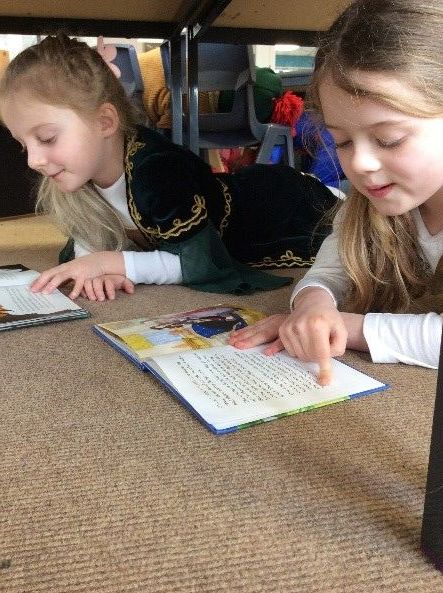English
Intent
At the Fern Academy Trust, English is at the cornerstone to our rich and varied curriculum which strives to ensure that every single child becomes a confident learner. We understand that to enable children to be successful across the curriculum, they must progress well in all areas of reading, writing, speaking and listening. We are determined that all children will become highly competent readers and writers by the end of their time with us.
Through use of high-quality texts from a range of authors, immersing children in vocabulary rich environments, teaching the craft of writing and ensuring the new curriculum expectations and the progression of skills are met, we enable our pupils to meet age-related expectations while developing a passion for writing, a love of reading and purposeful speaking and listening – irrespective of their personal background.
Implementation
In order to deliver this, our daily timetable includes a daily English lesson, Phonics or Spelling lesson and a discrete lesson for reading which explores verbally the class text. We also like to read a class story to the children each day.
Reading
-
At Wellington Primary School, we give a high priority to the teaching of phonics as we know that reading is a lifelong skill that unlocks all learning. Our aim is for all pupils to leave our school being able to read fluently and have a love of reading. Therefore, we are dedicated to ensuring that early reading, through phonics, is taught effectively every day.
It is essential that our approach to teaching phonics and reading is accessible to all learners. We adopt the synthetic phonics approach through the Read Write Inc (RWI) scheme. Synthetic phonics is the process of sounding out the individual sounds in an unknown word and then blending these sounds together in order to read the word.
- Children in KS1 and KS2 have weekly comprehension lessons using engaging, age-appropriate texts.
- Reading for meaning whole-class reading sessions daily to develop decoding, comprehension and fluency from Year 1 – 6.
- Class Story is read daily in all classes.
Writing
- Well-planned, text-led learning journeys with clear outcomes and embedded teaching of grammatical skills.
- Interesting and purposeful reasons to write.
- Differentiated tasks where appropriate to support and challenge all of our learners.
- Opportunities to apply taught skills across the curriculum.
Spelling
- Daily phonics in Reception and Key Stage 1, following Read Write Inc (RWI).
- Read Write Inc spelling sessions taught at least three times a week in Key Stage 2, with additional lessons focusing on statutory word lists.
Handwriting
- Cursive handwriting to be taught across the school with a requirement to have consistent joined handwriting by the end of Year 3. Handwriting is taught in a daily session in Key Stage 1.
Impact
We strive to ensure that our children's attainment is in line with or exceeds their potential when we consider the varied starting points of all of our children. We measure this using NFER assessments each half-term for Maths, Reading and GPS, and STA Assessment guidelines. We assess writing using our own internal assessment criteria which is taken from the national curriculum. The children that move on from the Fern Academy Trust take with them confidence, passion and high aspirations for their future learning through the progress, sustained learning and transferrable skills secured over their time with us. They understand that English is an integral part of the curriculum and that by securing the skills taught in the English lessons, they can confidently access the wider curriculum. As well as this positive impact across the curriculum, we hope that they foster a thirst for English, the writing process, and a true love of reading.
Wonderful Writing
At Wellington we follow the Write Stuff for English. Here are some photos of some fabulous finished pieces of writing completed by our students.



World Book Day
For World Book Day we celebrated our love of reading. There were many fun, book-based activities throughout the day including D.E.A.R. (Drop everything and read) and extreme reading. We loved seeing everyone dressed up as their favourite book character.



Author Visit
We were lucky enough to have Stacey Suter came into our school to share her very first book which is all about her travelling adventures. It is called 'Stacey Backpacks the World.'
We loved hearing her read extracts, answering questions and she even signed copies of the book for us.




Reading Buddies
This 1-on-1 pairing helps to develop their reading fluency, comprehension, and vocabulary. Older students become role models and mentors. These roles develop leadership skills by guiding and supporting their younger buddies both in and out of the classroom.






Rainbow Readers
To encourage a love of reading we reward students who read daily at home by giving them the Rainbow Reader Award. After collection five, they can choose a new book to keep.
Useful English websites:
https://www.courtyard.org.uk/whats-on-now/
https://www.bbc.co.uk/bitesize
https://www.hayfestival.com/g-6-children.aspx
https://www.phonicsplay.co.uk/
https://www.topmarks.co.uk/english-games/7-11-years/spelling-and-grammar




